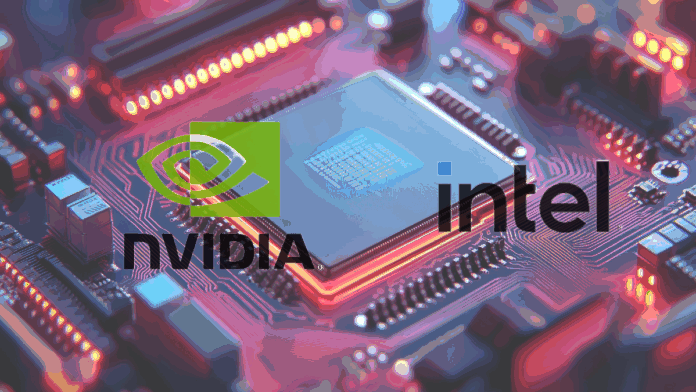Nvidia’s $5 billion stake highlights Intel’s enduring relevance in the AI era
In sum – what to know:
$5B Nvidia stake – Nvidia is investing $5 billion in Intel at $23.28 per share, becoming a major shareholder while the two firms pursue joint work on AI and PC chips.
Strategic confidence – The deal marks a rare show of confidence from an industry rival, underscoring Intel’s continued importance in AI infrastructure and semiconductors.
Bigger picture – Nvidia’s move adds to a growing pattern of large-scale bets on the troubled chip maker, highlighting its strategic role in global chip supply chains.
Intel has secured another major backer. Nvidia announced this week it will invest $5 billion in Intel, joining SoftBank and the U.S. government in a growing list of high-profile stakeholders betting on the future of the struggling U.S. chipmaker.
Nvidia will purchase Intel shares at $23.28 each, subject to regulatory approvals and closing conditions. The investment comes as part of a broader collaboration between the two companies, which will see the pair jointly develop multiple generations of custom data center and PC products that they say will accelerate applications and workloads across hyperscale, enterprise, and consumer markets. Intel will also build Nvidia-custom x86 CPUs that it can integrate into its AI infrastructure platforms and offer to the market.
Nvidia joins SoftBank and U.S. government as Intel backers
The Nvidia news follows on the heels of a landmark move by the U.S. government. Last month, Washington announced an $8.9 billion equity investment in Intel, executed at $20.47 per share. Combined with $2.2 billion in previous CHIPS Act grants, total federal support now stands at $11.1 billion.
That deal instantly made the government Intel’s largest shareholder, with a 10% stake, and included a five-year warrant to buy an additional 5% if its foundry ownership dips below 51%. The investment underscores the chip company’s role in U.S. industrial policy as the linchpin of domestic semiconductor capacity.
In parallel, Japanese conglomerate SoftBank revealed — also in August — that it will invest $2 billion in the company, purchasing stock at $23 per share. The move gives SoftBank roughly a 2% stake, making it Intel’s fifth-largest shareholder, according to FactSet data reported by CNBC. Intel shares rose about 6% in after-hours trading to $25 on the news.
For SoftBank, the investment marks a renewed interest in U.S. semiconductor assets after its earlier success with Arm. For Intel, it is another external vote of confidence at a time when the company is spending heavily to build out its foundry ambitions.
A pattern of strategic bets
Taken together, the sequence of investments — from SoftBank to the U.S. government and now Nvidia — signals that despite its operational struggles, Intel is being positioned as a critical player in the next era of computing.
The company has lagged rivals AMD and TSMC in advanced manufacturing and has yet to secure a major foundry customer. However, the influx of capital and strategic partnerships suggests that Intel’s value lies not only in its current performance but also in its long-term role in national security, supply chain resilience, and the AI economy.
Risks remain
The troubled chip company’s turnaround is far from assured. It faces execution challenges on its manufacturing roadmap, intense competition in both CPUs and accelerators, and pressure to deliver on its foundry strategy. Nvidia’s investment, while notable, also comes with technical hurdles: Integrating products at the chip level and coordinating supply chains will be difficult.
“This historic collaboration tightly couples NVIDIA’s AI and accelerated computing stack with Intel’s CPUs and the vast x86 ecosystem — a fusion of two world-class platforms,” said Nvidia founder and CEO Jensen Huang. “Together, we will expand our ecosystems and lay the foundation for the next era of computing.”

